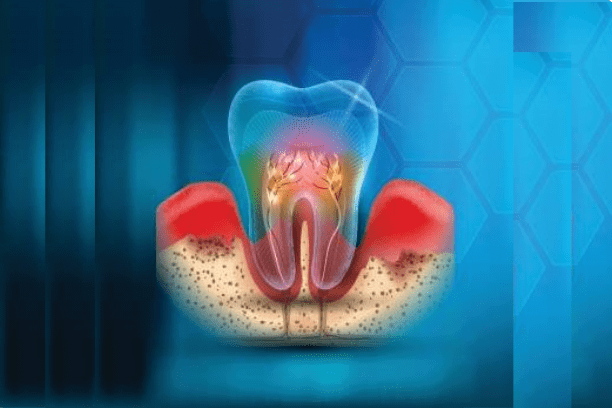
Periodontology
Periodontal disease, also known as periodontitis, is an inflammatory disease of the periodontium caused by bacteria.
Here are some important aspects:
Etiology: The main cause of periodontal disease is an accumulation of plaque, a sticky substance formed from bacteria and food debris that builds up on the teeth and root surfaces. If plaque is not removed regularly, it hardens into tartar and leads to inflammation of the gums (gingivitis). If gingivitis is left untreated, it can spread to the deeper tissues, roots and bones of the periodontium and lead to periodontitis.
Causes: The main causes of periodontitis are inadequate oral hygiene, genetic predisposition, smoking, diabetes, certain medications and hormonal changes (e.g. during pregnancy or menopause).
Treatment: The treatment of periodontal disease aims to control the inflammation, reduce the bacteria and repair damaged tissue. Typical therapies include professional dental cleanings, scaling and root planing (deep cleaning), antibiotics (local or systemic), possibly surgical procedures such as removal of infected tissue, but also regular follow-up and care at home.
Prospects of success: The chances of success depend on several factors, including the severity of the disease, the effectiveness of the treatment and the patient’s adherence to oral hygiene practices. Periodontal disease that is detected and treated early can often be successfully controlled to prevent further damage. However, in advanced cases, treatment can be more complex and may require long-term care to keep the disease under control and minimize tooth and tissue loss. Regular dental check-ups and good oral hygiene at home are crucial to the long-term success of treatment.
Arrange your appointment now!
069 – 95 90 93 19
